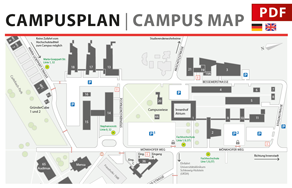UPDATE: Raumänderung -> 25-2.16
Das CoSA-Seminar findet am 23.05.2022 um 11:45 Uhrhybrid statt.
Präsenz: Raum 25-2.16
Virtuell: CoSA - Seminar (Die Webkonferenz wird ab ca. 11:30 Uhr für die Teilnehmer freigeschaltet)
Wir haben folgende Vorträge geplant:
- Lars Vosteen: Practical Security Analysis and Measures for 5G Private Industrial Standalone (SA) Deployments
- Björn Sievers: Concept, Design and Implementation of a Robust and Energy-Efficient Networked System for Industrial Gas Monitoring Applications
Die Vorträge dauern ca. 15 Minuten mit anschließend 10 Minuten Diskussion. Wir freuen uns auf eine rege und aktive Teilnahme.
Die Seminare sind auch auf https://www.th-luebeck.de/cosa/zu finden. Wenn Sie auch einmal einen Vortrag anbieten möchten, kontaktieren Sie uns gerne (fabian.john(at)th-luebeck.de).
Viele Grüße
Fabian John
Lars Vosteen: Practical Security Analysis and Measures for 5G Private Industrial Standalone (SA) Deployments
The fifth generation of mobile communications (5G) is a modern standard whose adoption is growing rapidly. In addition to nationwide networks of large operators, the standard also allows for small-scale private campus networks. A cost-effective, secure, and easy-to-manage setup of such a small network is vital for research and industry. High demands are made, especially on the protection of networks in areas with confidential data. This thesis extends the 5G system setup of the Lübeck University of Applied Science' by a monitoring system and uses a security analysis to derive protective measures. It is shown that extending rights from mere unsupervised presence to root access is possible, and countermeasures are implemented to close the determined primary attack vectors. In the experimental verification, the monitoring system notably proved to be resource-efficient, simple to set up, and easy to expand. It contributes to the security of the system by detecting attacks and reporting them appropriately as well as enhancing its reliability by monitoring performance data to detect and prevent failures.
Björn Sievers: Concept, Design and Implementation of a Robust and Energy-Efficient Networked System for Industrial Gas Monitoring Applications
This thesis describes a wireless sensor network’s conceptual design and development-based on the Bluetooth mesh protocol. This work aims to improve the energy efficiency of the sensor network and its resilience against failures of sensor nodes. For this purpose, duty-cycling and network clustering methods are selected, allowing a flexible application range of the sensor system. The deployed sensor system is evaluated with a testbed consisting of 25 nodes in an office building. The evaluation shows that the selected concept enables the sensor network to form a hierarchical network structure and to compensate for node failures by reorganizing the network structure independently. Furthermore, through the network clustering and the introduction of retransmission requests, it is shown that for all sensor nodes in the network, more than 99% of the sensor values are reported on time within the required interval.

